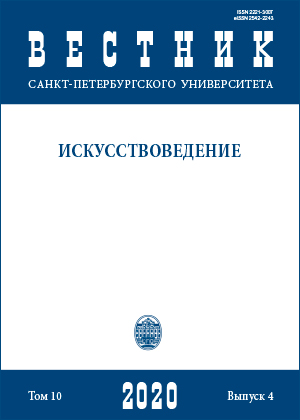Dziga Vertov — Boris Kaufman — Jean Vigo
DOI:
https://doi.org/10.21638/spbu15.2020.402Аннотация
The article is an attempt to discuss Dziga Vertov’s influence on French filmmakers, in particular on Jean Vigo. This influence may have resulted from Vertov’s younger brother, Boris Kaufman, who worked in France in the 1920s — 1930s and was the cinematographer for all of Vigo’s films. This brother-brother relationship contributed to an important circulation of avant-garde ideas, cutting-edge cinematic techniques, and material objects across Europe. The brothers were in touch primarily by correspondence. According to Boris Kaufman, during his early career in France, he received instructions from his more experienced brothers, Dziga Vertov and Mikhail Kaufman, who remained in the Soviet Union. In addition, Vertov intended to make his younger brother become a French kinok. Also, À propos de Nice, Vigo’s and Kaufman’s first and most “vertovian” film, was shot with the movable hand camera Kinamo sent by Vertov to his brother. As a result, this French “symphony of a Metropolis” as well as other films by Vigo may contain references to Dziga Vertov’s and Mikhail Kaufman’s The Man with a Movie Camera based on framing and editing. In this perspective, the research deals with transnational film circulations appealing to the example of the impact of Russian avant-garde cinema on Jean Vigo’s films.
Ключевые слова:
Soviet cinema, French cinema, documentary cinema, cultural transfer studies, film studies
Скачивания
Библиографические ссылки
Загрузки
Опубликован
Как цитировать
Выпуск
Раздел
Лицензия
Статьи журнала «Вестник Санкт-Петербургского университета. Искусствоведение» находятся в открытом доступе и распространяются в соответствии с условиями Лицензионного Договора с Санкт-Петербургским государственным университетом, который бесплатно предоставляет авторам неограниченное распространение и самостоятельное архивирование.






